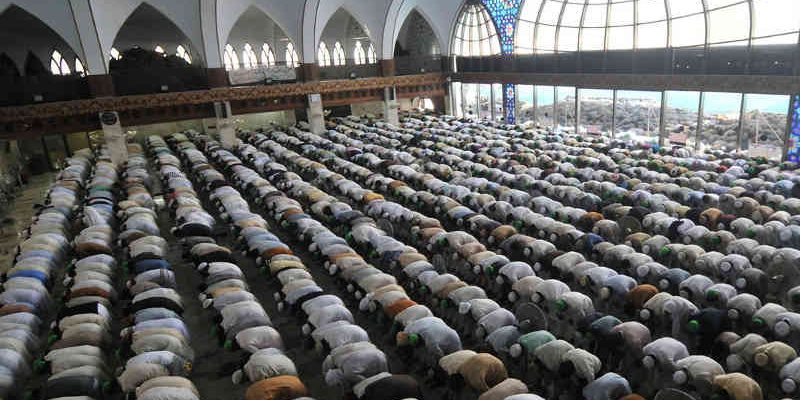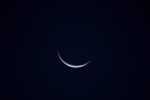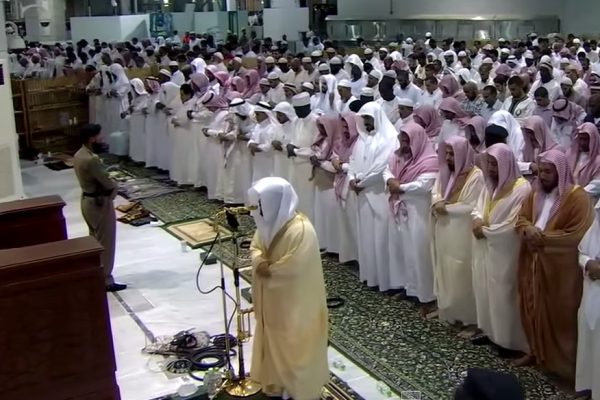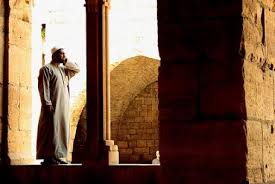Praying ʿĪd ṣalāh on the second or third day
Question: The lockdown in Leicester may be relaxed on the 1st of August. If this is the case, is it permissible to delay the ʿĪd ṣalāh so that rather than praying on Friday, it is prayed on Saturday? If so, what should be done about Qurbānī?
Answer
بسم الله الرحمن الرحیم
If the current imposed lockdown in Leicester is relaxed and the congregational prayer is allowed, this could come into effect on Saturday the 1st of August, one day after ʿĪd. However, this will possibly be announced on Thursday, the day before ʿĪd. This being the case, it is permissible for the masājid to delay praying the ʿĪd ṣalāh so that the community can join in the prayer once the lockdown has been lifted.
The jurists have stated that ʿĪd ṣalāh in ʿĪd al aḍḥā is valid for three days beginning from the 10th of Dhū ‘l-Ḥijjah. However, although it is valid for three days, it should not be delayed without a valid reason. Hence, if the ṣalāh was delayed without a valid reason, it will be valid but disliked [makrūh]; and if it was delayed due to a valid reason, then it will be valid without any dislikeness.
The permissibility of praying ʿĪd ṣalāh on the next day is taken from the ḥadīth related by Abū Dāwūd and others that a group came to the Messenger of Allah ﷺ and testified that they had saw the crescent [of Shawwāl] the night before. The Messenger of Allah ﷺ instructed them to break their fast and to go out to their area of ʿĪd prayer [muṣallā] the following morning.[1]
Among the reasons that allow delaying the prayer without being disliked, is if the announcement of ʿId came at a time when it will not be practical to inform and gather the people. The example provided in the classical books is if the announcement of ʿĪd came just before the end of the permissible time of praying ʿĪd ṣalāh, which is between the end of fajr and the beginning of zuhr, then it is permissible to delay the ʿĪd ṣalāh to the next day. What is interesting is that the reason provided by the jurists for the permissibility of delaying is not that there is not sufficient time for the ṣalāh to be prayed; rather that it will be difficult to gather the masses before the time elapses. Hence, although the ʿĪd ṣalāh could have been prayed with just a few people, permissibility was given to delay the prayer so that the masses can also join in.
Based on the above, if the lockdown is to be lifted on Saturday the 1st of August, then it will be permissible, without any dislikeness, to delay praying ʿĪd ṣalah to Saturday.[2]
Regarding the uḍḥīyyah (qurbānī), as a general principle, it is valid only after the ʿĪd ṣalāh has been prayed in those locations where ʿĪd ṣalāh is necessary. This is based on the ḥadīth of Barāʾ, related by Imām Bukhārī, that the Messenger of Allah ﷺ said: ‘Our first ritual on this day is to begin with ṣalāh. Thereafter, we will return and slaughter. Whosoever does this has conformed to our way; and whosoever slaughters before that, then it is only something which he has hastened for his family without having achieved anything from the ritual.’[3]
However, if the ūḍḥīyyah (i,e. the slaughtering) is being offered in another city/country, then the condition will apply to that city/country. Whenever ʿĪd ṣalāh has been prayed there, then the slaughtering can take place irrespective of whether the person on behalf of whom the slaughtering is taking place has prayed ʿĪd ṣalāh or not. If ʿĪd ṣalāh is necessary in that location, such as in cities, then the uḍḥīyyah must be done after the ʿĪd ṣalāh. If, however, the uḍḥīyyah is being offered in a location where ʿĪd ṣalāh is not necessary, then the uḍḥīyyah can be done immediately after dawn.[4]
And Allah knows best
Ibrāhīm ibn Muḥammad
Checked and approved by Muftī Ṭāhir Wādī
[1] روى أبو داود عن أبي عمير بن أنس، عن عمومة له من أصحاب رسول الله ﷺ، أن ركبا جاءوا إلى النبي ﷺ يشهدون أنهم رأوا الهلال بالأمس، فأمرهم أن يفطروا، وإذا أصبحوا أن يغدوا إلى مصلاهم
[2] قال الكاساني: وأما في عيد الأضحى فإن تركها في اليوم الأول لعذر أو لغير عذر صلى في اليوم الثاني، فإن لم يفعل ففي اليوم الثالث، سواء كان لعذر أو لغير عذر غير أن التأخير إذا كان لغير عذر تلحقه الإساءة وإن كان لعذر لا تلحقه الإساءة وهذا؛ لأن القياس أن لا تؤدى إلا في يوم عيد؛ لأنها عرفت بالعيد فيقال صلاة لعيد، إلا أنا جوزنا الأداء في اليوم الثاني في عيد الفطر بالنص الذي روينا والنص الذي ورد في حالة العذر فبقي ما رواه على أصل القياس وإنما جوزنا الأداء في اليوم الثاني والثالث في عيد الأضحى استدلالا بالأضحية فإنها جائزة في اليوم الثاني والثالث فكذا صلاة العيد (بدائع الصنائع: 1/276)
وقال شيخي زاده: (وإن منع عذر) بأن غم الهلال وشهدوا برؤيته بعد الزوال كذا في أكثر الكتب لكن التقييد بالهلال ليس بشرط لأنه لو حصل عذر مانع كالمطر الشديد وشبهه فإنه يصليها من الغد لأنه تأخير للعذر كما في الجوهرة (مجمع الأنهر: 1/174)
وقال النسفي والزيلعي: (وتؤخر بعذر إلى الغد فقط) أي تؤخر صلاة العيد إلى الغد إذا منعهم من إقامتها عذر بأن غم عليهم الهلال وشهد عند الإمام بالهلال بعد الزوال أو قبله بحيث لا يمكن جمع الناس قبل الزوال (تبيين الحقائق: 1/226)
وقال ابن عابدين: (قوله بعذر كمطر) دخل فيه ما إذا لم يخرج الإمام وما إذا غم الهلال فشهدوا به بعد الزوال أو قبله، بحيث لا يمكن جمع الناس أو صلاها في يوم غيم، وظهر أنها وقعت بعد الزوال كما في الدرر وشرحه للشيخ إسماعيل وفيه عن الحجة: إمام صلى العيد على غير وضوء ثم علم بذلك قبل أن يتفرق الناس توضأ ويعيدون وإن تفرق الناس لم يعد بهم وجازت صلاتهم صيانة للمسلمين وأعمالهم (قوله: فقط) راجع إلى قوله: بعذر فلا تؤخر من غير عذر وإلى قوله إلى الزوال فلا تصح بعده وإلى قوله من الغد فلا تصح فيما بعد غد، ولو بعذر كما في البحر ط (قوله وحكى القهستاني قولين) ثم قال: ولعله مبني على اختلاف الروايتين ويؤيده ما في زكاة النظم أن لصلاته يوما واحدا في الأصول ويومين في مختصر الكرخي. اهـ.
تنبيه: ذكر في المجتبى عن الطحاوي أن ما ذكره المصنف قول أبي يوسف، وأن أبا حنيفة قال: إن فاتت في اليوم الأول لم تقض لكن لم يذكر في الكتب المعتبرة اختلاف في هذا كما في البحر (رد المحتار: 2/176)
قال العبد الضعيف: اختار الطحاوي من الحنفية القول بعدم جواز تأخير صلوة العيد إلى اليوم الثاني والثالث بناء على أن الروايات الصحيحة عنده لم تذكر أن النبي ﷺ أمر الصحابة بصلوة العيد في اليوم التالي، وإنما أمرهم بالخروج إلى المصلى وذلك لا يلزم الصلوة، وهذا كما أمرت الحُيَّض بالخروج إلى المصلى. وقال الطحاوي في آخر الباب: وهو قول أبي حنيفة رحمه الله تعالى , فيما رواه عن بعض الناس، ولم نجده في رواية أبي يوسف عنه ، هكذا كان في رواية أحمد رحمهما الله تعالى (شرح معاني الآثار: 1/387)
وقال الزحيلي: إذا لم يعلم قوم بالعيد إلا بعد زوال الشمس (أي ظهر العيد) ،أو غُمَّ الهلال على الناس، فشهدوا عند الإمام برؤية الهلال بعد الزوال، أو حصل عذر مانع كمطر شديد، ففي جواز صلاة العيد في اليوم التالي رأيان:
قال المالكية: لا تصلى من الغد، ولا تنوب عن صلاة العيد؛ لفوات وقتها.
وقال الجمهور: تصلى في اليوم التالي من الغد، وفي عيد الأضحى إلى ثلاثة أيام، لما روى أبو عمير بن أنس عن عمومة له من أصحاب رسول الله ﷺ، قال: غمَّ علينا هلال شوال، فأصبحنا صياماً، فجاء ركب في آخر النهار، فشهدوا أنهم رأوا الهلال بالأمس، فأمر النبي صلّى الله عليه وسلم ﷺ الناس أن يفطروا من يومهم، وأن يخرجوا غداً لعيدهم أي إلى المصلى كما في رواية البيهقي.
وهذا هو الراجح، قال أبو بكر الخطيب: سنة النبي ﷺ أولى أن تتبع، وحديث أبي عمير صحيح، فالمصير إليه واجب، وكالفرائض. انتهى.
[3] روى البخاري عن البراء، قال: خرج النبي ﷺ يوم أضحى إلى البقيع، فصلى ركعتين، ثم أقبل علينا بوجهه، وقال: إن أول نسكنا في يومنا هذا، أن نبدأ بالصلاة، ثم نرجع، فننحر، فمن فعل ذلك فقد وافق سنتنا، ومن ذبح قبل ذلك، فإنما هو شيء عجله لأهله ليس من النسك في شيء
[4] قال السرخسي: المعتبر المكان الذي فيه الأضحية حتى إذا كان الرجل بالمصر وأضحيته بالسواد يجوز أن يضحي بها بعد انشقاق الفجر (المبسوط: 12/19)





